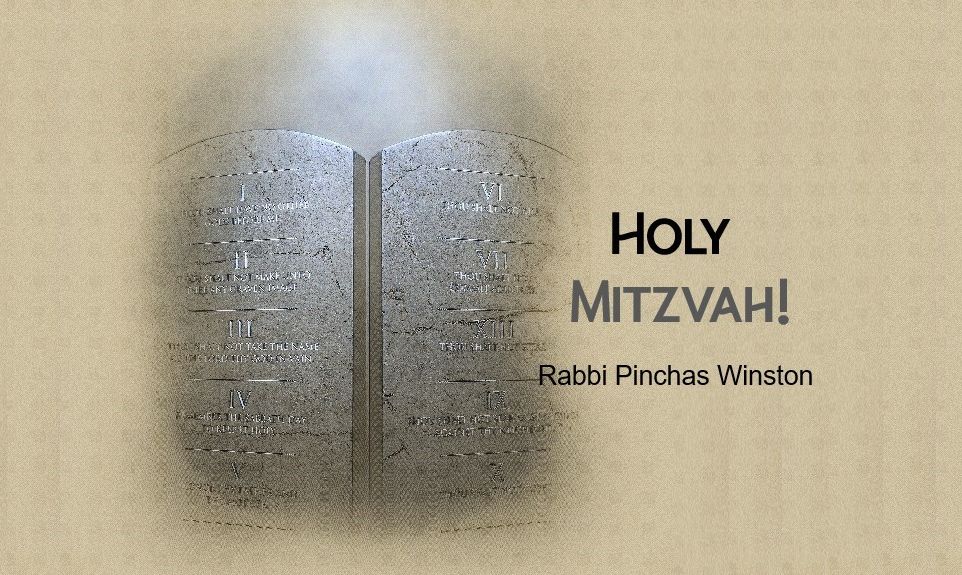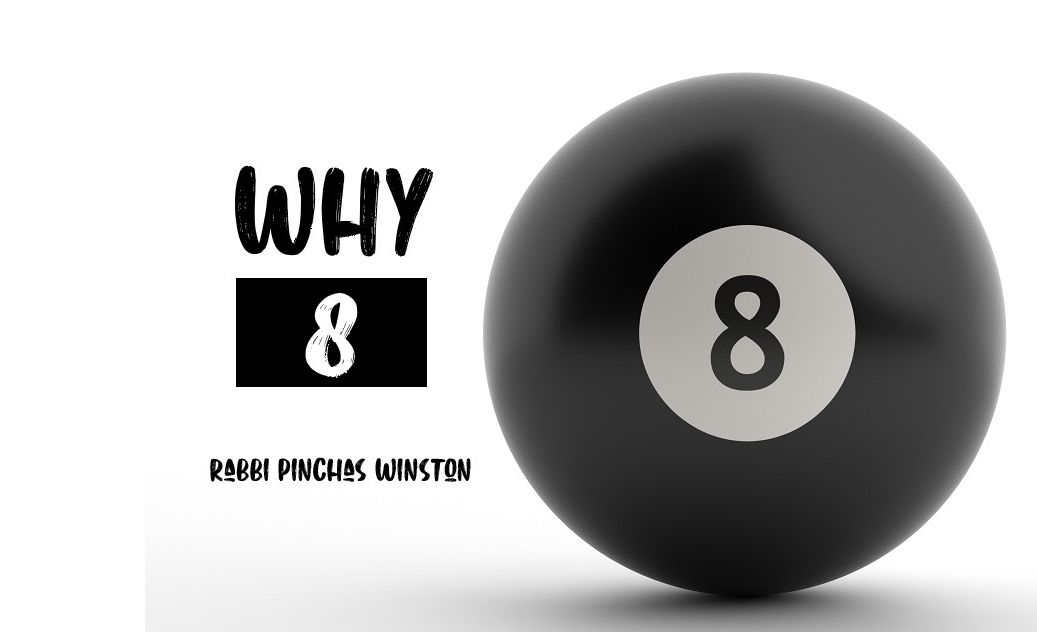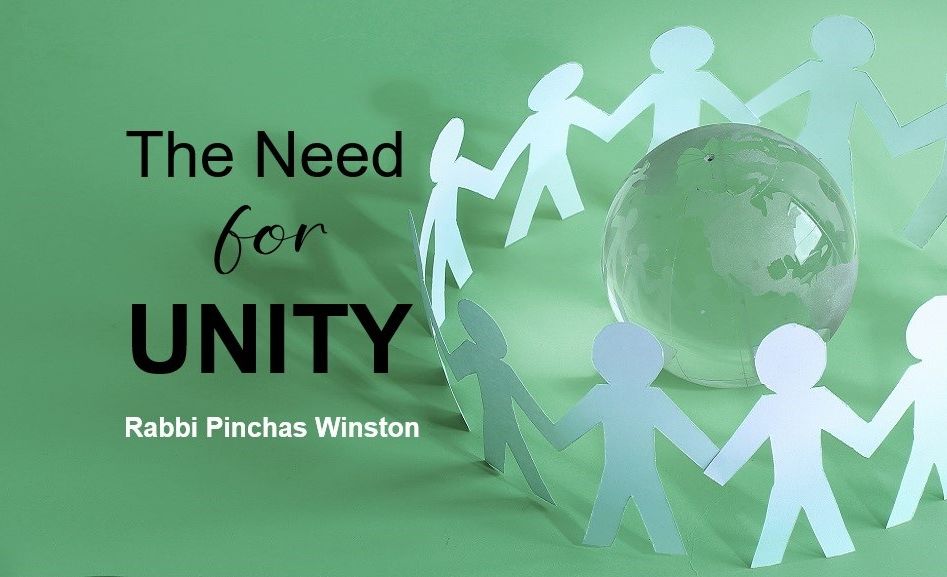FRIDAY NIGHT:
א וַיְדַבֵּ֥ר יְהוָֹ֖ה אֶל־משֶׁ֥ה לֵּאמֹֽר:
ב דַּבֵּ֞ר אֶל־כָּל־עֲדַ֧ת בְּנֵֽי־יִשְׂרָאֵ֛ל וְאָֽמַרְתָּ֥ אֲלֵהֶ֖ם קְדשִׁ֣ים תִּֽהְי֑וּ כִּ֣י קָד֔וֹשׁ אֲנִ֖י יְהוָֹ֥ה אֱלֹֽהֵיכֶֽם:
G-d told Moshe, “Speak to the entire congregation of the Children of Israel and tell them, ‘Be holy, for I, your G-d, am holy.’ ” (Vayikra 19:1-2)
This week’s parshah begins with the mitzvah to be holy. The concept sounds simple enough, that is, not actually achieving this level. Becoming holy is the work of a lifetime, and there will always be room for improvement for going to higher levels.
The first question one has to ask in order to begin moving in this direction of spiritual greatness – what is holiness?
It sounds like a simple question to answer. However, in truth, it is a point of disagreement between two of the greatest Torah commentators, Rashi and the Ramban. According to Rashi, the mitzvah to be holy means to stay far away from all those things the Torah forbids us to indulge in, particularly forbidden relationships.
However, the Ramban does not agree with Rashi’s interpretation, at least with respect to this posuk. Instead, he explains:
BE HOLY: In my opinion, this “separation” is not from forbidden relationships, as [Rashi] says, but it is the kind of separation mentioned throughout the Torah when it comes to being elevated. For, the Torah warned us regarding forbidden relationships and forbidden foods, but it also permitted spousal intimacy, and [kosher] meat and wine. Thus, a person with strong physical desires could behave “promiscuously” with his own wife, or many women (since he could marry more than one wife), and eat [kosher] meat and drink wine in a disgusting manner, since the Torah had not forbidden it [outright], and he would be a “menuval b’reshus HaTorah” – disgusting within that which the Torah permits. Therefore, after the Torah specified what is certainly forbidden, it returns to tell us that we should also limit that which is permissible. (Ramban, Vayikra 19:2)
Thus, according to the Ramban, being holy is about more than abstaining from that which the Torah forbids; that is the starting point for a Jew. Being holy means that, even with respect to that which the Torah permits, one has to exercise moderation, which, in the Torah sense, means using the physical world to help the body to achieve spiritual accomplishments.
We don’t eat for eating’s sake, and we don’t indulge in other pleasures for their own sake either. We use the physical world as means to elevate ourselves, and in doing so, elevate the physical world. This, ultimately, represents the primary role of the Jewish people within creation.
The only problem is, if you look in the “Minyan HaMitzvot” at the beginning of Parashas Kedoshim where it lists all the mitzvot of the upcoming parshah, you will see that the first mitzvah recorded is the one to fear one’s parents. According to the Minyan HaMitzvot, and all commentators concur, the first mitzvah of the parshah is not “be holy,” though it sure sounds like a mitzvah; it is from the next posuk about fearing one’s mother and father.
Does that mean that there is no “mitzvah” to be holy? How can that be? Didn’t the Torah previously say:
Moshe went up to G-d, and G-d called to him from out of the mountain, “Tell the house of Ya’akov, and the Children of Israel: ‘You have seen what I did to Egypt, and how I bore you on eagles’ wings, and brought you to Myself. If you will obey My voice and keep My covenant, then you will be unique to Me above all the nations, for all the earth is Mine. You will be a kingdom of priests to Me, a HOLY nation.’ ” (Shemos 19:3-6)
Thus, holiness is what we, the Jewish people, are all about. Therefore, why is such an important mitzvah not one of the 613 Mitzvot (besides the fact that it would turn the number into 614)?
* * *
SHABBAT DAY:
ג וּמשֶׁ֥ה עָלָ֖ה אֶל־הָֽאֱלֹהִ֑ים וַיִּקְרָ֨א אֵלָ֤יו יְהוָֹה֙ מִן־הָהָ֣ר לֵאמֹ֔ר כֹּ֤ה תֹאמַר֙ לְבֵ֣ית יַֽעֲקֹ֔ב וְתַגֵּ֖יד לִבְנֵ֥י יִשְׂרָאֵֽל:
ד אַתֶּ֣ם רְאִיתֶ֔ם אֲשֶׁ֥ר עָשִׂ֖יתִי לְמִצְרָ֑יִם וָֽאֶשָּׂ֤א אֶתְכֶם֙ עַל־כַּנְפֵ֣י נְשָׁרִ֔ים וָֽאָבִ֥א אֶתְכֶ֖ם אֵלָֽי:
ה וְעַתָּ֗ה אִם־שָׁמ֤וֹעַ תִּשְׁמְעוּ֙ בְּקֹלִ֔י וּשְׁמַרְתֶּ֖ם אֶת־בְּרִיתִ֑י וִֽהְיִ֨יתֶם לִ֤י סְגֻלָּה֙ מִכָּל־הָ֣עַמִּ֔ים כִּי־לִ֖י כָּל־הָאָֽרֶץ:
ו וְאַתֶּ֧ם תִּֽהְיוּ־לִ֛י מַמְלֶ֥כֶת כֹּֽהֲנִ֖ים וְג֣וֹי קָד֑וֹשׁ אֵ֚לֶּה הַדְּבָרִ֔ים אֲשֶׁ֥ר תְּדַבֵּ֖ר אֶל־בְּנֵ֥י יִשְׂרָאֵֽל:
Moshe went up to G-d, and G-d called to him from out of the mountain, “Tell the house of Ya’akov, and the Children of Israel: ‘You have seen what I did to Egypt, and how I bore you on eagles’ wings, and brought you to Myself. If you will obey My voice, and keep My covenant, then you will be unique to Me above all the nations, for all the earth is Mine. You will be a kingdom of priests to Me, a HOLY nation.’ These are the words to tell Israel.” (Shemot 19:3-6)
Indeed, holiness is what creation as a whole is all about:
At that time [Resurrection of the Dead, 5760-6000], a great change will occur to the entire world, even to those still in existence from this world, though they remain quite physical. For, at the present time, the world consists of three categories: impure, pure, and holy, and even the “pure” of today is still quite profane, lacking holiness. However, at that time, everything will be on the level of pure and HOLY. (Sha’arei Leshem, p. 491)
In fact, the two words that the Kohen Gadol wore on the Tzitz, the special gold plate that he wore on his forehead: Kodesh L’Hashem – holy to G-d – was not just a directive to him and those who served in the Temple. It was a reminder for the entire Jewish people of our purpose here on earth: to be a holy nation and to elevate the rest of creation to this high spiritual status.
Thus, being holy is the goal of all a Jew does, which is why Parshat Kedoshim comes in the middle of Sefer Vayikra, and not at the beginning or end of it. It is as if the Torah is saying, now that I have taught you all the TECHNICAL laws regarding your daily lifestyle as a nation of G-d, we can finally begin discussion on the inyan, the heart of the matter, of kedushah, of holiness.
Thus, it says:
Rebbi Pinchas ben Yair said: Watchfulness leads to zealousness, zealousness leads to cleanliness, cleanliness leads to purity, purity leads to separation, separation leads to holiness, holiness leads to humility, humility leads to fear of sin, fear of sin leads to piety, piety leads to a holy spirit, and a holy spirit leads to resurrection of the dead, which will come through Eliyahu HaNavi, may he come and redeem us quickly in our time. (Sotah 49b)
Just like Parshat Kedoshim itself, the mitzvah to be holy is the level one reaches by keeping all technical mitzvot possible, and it is an indispensable rung on the spiritual ladder to climb to higher heights, the end goal of the Jewish people. To lose sight of this, says the Ramban, is to take the Torah’s silence as permission to abuse that which is permissible, yet holy. There is no such permission, says the Ramban, for a holy nation such as the Jewish people. Rather, the Torah’s silence is actually saying: Through the laws, about which you have little or no choice, I have brought you to the door of holiness. It is your personal will and desire that must carry you across the threshold.
It is for this that we were created. It is for this that G-d redeemed us from Egypt. It is for this that we will be evaluated at the end of days.
But why is it only an inyan? Because, an inyan is an idea that expresses, on some important level, that which the Jewish people are all about. An inyan represents, to some extent, what a Jew is supposed to strive for through keeping Torah and mitzvot – that extra little mile we go to show G-d that we got the message.
As such, an inyan cannot be obligatory, any more than the “nedavot haleiv” could be at the beginning of Parshat Terumah, “suggested” for the creation of the implements for the Mishkan. How do you command someone to give of their heart; how do you command someone to love another?
* * *
SEUDAH SHLISHIT:
ג צָמְאָ֬ה נַפְשִׁ֨י | לֵֽאלֹהִים֘ לְאֵ֪ל֫ חָ֥י מָתַ֥י אָב֑וֹא וְ֜אֵֽרָאֶ֗ה פְּנֵ֣י אֱלֹהִֽים
“My soul thirsts for G-d, the Living Almighty.” (Tehillim 42:3)
How do you command someone to love another? You can’t. In fact, this is the explanation given for the Rambam’s halachah regarding the mitzvah to love G-d. The Rambam writes:
What is the path to loving Him and fearing Him? When a person contemplates His works and His awesome and mighty creations, and sees in them incomparable and endless wisdom, immediately he will love, praise, glorify, and greatly desire to know his Great Name, as Dovid wrote, “My soul thirsts for G-d, the Living Almighty” (Tehillim 42:3). (Yad, Hilchot Yesodei HaTorah, 2:1)
What is the “path” to loving Him? Who was talking about paths? Why doesn’t the Rambam just say, “There is a mitzvah to love G-d, so do it, or transgress a very central tenet of Torah!”?
Because, the Rambam understood, emotions cannot be commanded, but are the end result of our perceptions and experiences. Therefore, the Rambam is instructing, if you want to love G-d, create the proper perceptions and experiences that result in such an emotional response to G-d. And to do that, says the Rambam, is simply a matter of appreciating the world that envelopes and supports you.
An inyan works in very much the same way. It both facilitates the proper perception and experience to love and come close to G-d, and it is also the result of them. And, as the opening midrash revealed, although there is no mitzvah to make aliyah at this time of history, prior to Mashiach’s arrival, there is a very important inyan to do so.
And, though inyanim rarely push off halachah, if at all, it seems that oftentimes they can mitigate halachah, as in the case of Purim being in the second month of Adar, as opposed to Adar I, in a leap year. There, the inyan of having the redemption of Purim close to the redemption of Pesach pushes off the halachah of doing a mitzvah the first chance we have, which in the case of a leap year, would be the first month of Adar. (Megillah 6b)
Therefore, in conclusion, the mitzvah to be holy, like the mitzvah to love G-d, is to do that which automatically results in being of a holy nature. It is not a technical reality, but one born out of an intense desire to come close to G-d, will fulfill the mandate for creation, and make everything holy to G-d.
It is like a father who has two sons, whom he commands each day to bring him his food and to prepare his bed. One day, he says nothing to the two sons, for whom it is a strange occurrence.
“Do you think father forgot to ask us today to prepare his food and his bed this evening, and that we should do it anyhow?”
“No,” says the other son. “He never forgets to ask. He must not require it of us tonight. Let’s go and play.”
“But, what if he comes home and is disappointed that we didn’t do it on our own?” the first son questions.
“We can always say, ‘You always ask us, but this time you didn’t, so what could we do?’ “
“I don’t know,” the first son worries. “I’m going to do it anyhow. Worse comes to worst, father will not need it.”
“Do what you want!” the second son says, “I’m going to play and do what I know I have to do.”
As it turns out, the first son was correct. The father had wanted to test his sons, to see who really got the message and could carry it through on his own. Not only did the father thank the first son who brought him his dinner and prepared his bed, but he rewarded him as well.
“But you didn’t ask us to do it!” the second son said in protest later.
“I specifically didn’t ask you, to see if you would do it on your own, as a function of your love for me. People don’t take chances with the ones they love.”
“Be holy,” G-d says, “for I, your G-d, am holy.”
* * *
MELAVE MALKAH:
יז וְאִ֣ישׁ אֲשֶׁר־יִקַּ֣ח אֶת־אֲחֹת֡וֹ בַּת־אָבִ֣יו אֽוֹ־בַת־אִ֠מּ֠וֹ וְרָאָ֨ה אֶת־עֶרְוָתָ֜הּ וְהִֽיא־תִרְאֶ֤ה אֶת־עֶרְוָתוֹ֙ חֶ֣סֶד ה֔וּא וְנִ֨כְרְת֔וּ לְעֵינֵ֖י בְּנֵ֣י עַמָּ֑ם עֶרְוַ֧ת אֲחֹת֛וֹ גִּלָּ֖ה עֲוֹנ֥וֹ יִשָּֽׂא:
“If a man takes his sister through his father or his mother… it is a disgrace (chesed).” (Vayikra 20:17)
Talk about words with double meanings! The actual Hebrew word in this posuk is “chesed,” which means “kindness,” which here, is being translated as “disgrace.” After all, how can forbidden intimacy be a kindness, and for whom?
However, it is not as if we don’t have enough words for “disgrace” in the Hebrew lexicon that the Torah had to go out of its way to use its antonym. Therefore, the Torah, in using this word, must be alluding to something else here on quite a pshat level, since the awkward reference is so blatant.
The Talmud says that it is a reference to Kayin, who had been permitted to marry his sister to begin populating the world. Had he not been permitted to take his sister as a wife, then there would have been no one else to marry. Therefore, Kayin saw this exception as a kindness from G-d (Sanhedrin 58b). Perhaps, this was to tell the person who tried to justify such a relationship because the world was built upon it, the Torah tells us that it was a one-time “chesed.”
However, Kabbalah has a different approach to the “chesed,” and sees in it an allusion to the actual punishment for violating this serious prohibition:
. . . One who has relations with his daughter-in-law reincarnates into a mule . . . with one’s step-mother, into a camel; with one’s sister-in-law (brother’s wife), into a male mule; with one’s sister through his father or his mother, into a stork (chassidah), and his companions will kill him. This is the sod (secret) of the posuk, “If a man takes his sister through his father or his mother… it is a chesed.” (Sha’ar HaGilgulim, Chapter 20)
Which, of course, is our posuk. This does not mean that Kabbalah and the Talmud do not agree with each other. Rather, it is another example of how a word from the Torah can have multiple meanings, each one being true.
It is also an example of how the sins we perform today do not necessarily come back to haunt us in the same lifetime in which they are performed. In fact, when the Talmud tells us that G-d punishes “measure-for-measure,” it could be in the next lifetime – or lifetimes.
“Eat, drink, and be merry, for who knows what will become of us tomorrow!”
Torah does, and it is telling us that if you want to eat, drink, and be merry in future lifetimes, and particularly in the World-to-Come, then you have to make the spiritual best of each lifetime you are living, starting with this one.
***
Pinchas Winston is the author of over 95 books on various topics that deal with current issues from a traditional Jewish perspective. He has also written on the weekly Torah reading since 1993, called “Perceptions”, as well as on current topics and trends affecting Jewish history, past and present. One of his missions is to make the depth and beauty of the more mystical teachings of Torah understandable and accessible to those who can really benefit from them. Visit his website at thirtysix.org.









Tell us what you think!
Thank you for your comment!
It will be published after approval by the Editor.